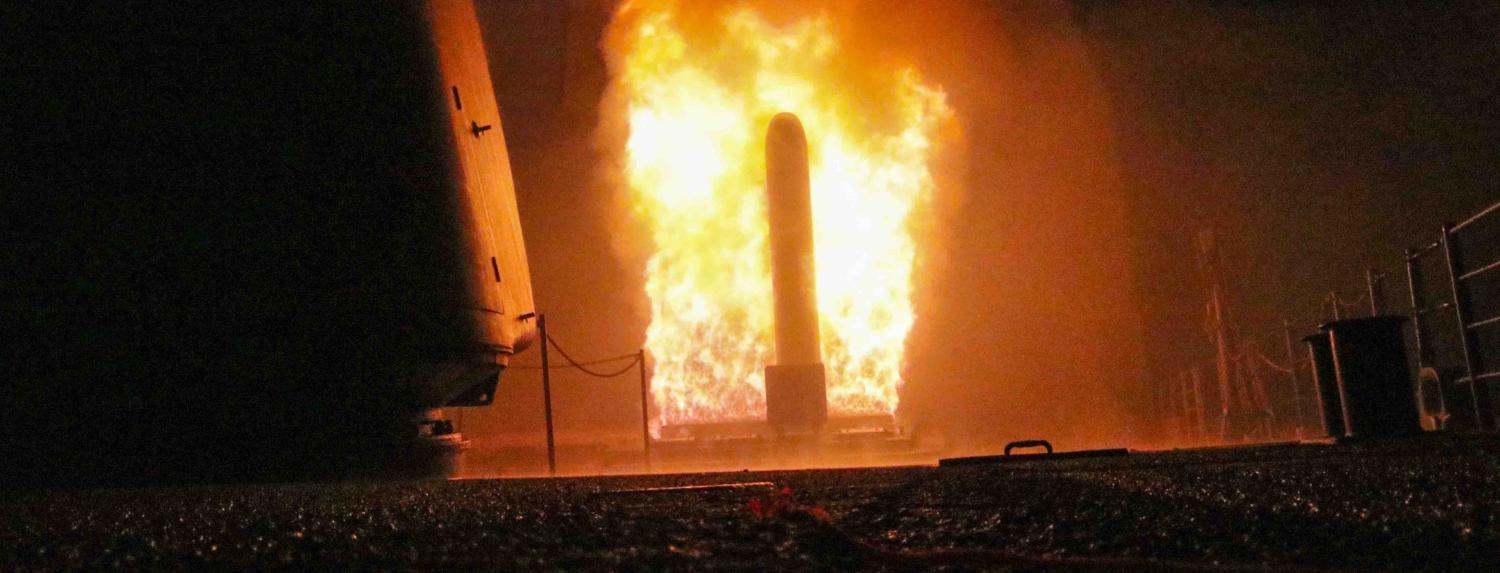The US military claims the ability of the Syrian regime to use chemical weapons has been set back “for years” following strikes on Saturday. Given it is just one year since the US last struck Syrian targets following a chemical weapons attack, the latest claim won’t wash for many.
Indeed, the Pentagon concedes Bashar al-Assad will still likely have the ability to use chemical agents following the weekend attacks by US, British and French forces. The US has warned it remains “locked and loaded” to strike again.
So what was the mission Donald Trump boasted to be accomplished?
A perfectly executed strike last night. Thank you to France and the United Kingdom for their wisdom and the power of their fine Military. Could not have had a better result. Mission Accomplished!
— Donald J. Trump (@realDonaldTrump) April 14, 2018
Trump’s clear frame of reference is enforcing the “red line” that he (and many others) criticised Barack Obama for allowing to be crossed in Syria. If the goal of the latest strikes was simply to punish Assad, then yes, this limited mission is done.
But if the goal is to deter further use of chemical weapons – especially given chlorine bombs are relatively cheap to make or debate whether only nerve agents cross the red line – judgement needs to be reserved.
Escalation is ever a risk. Russia’s Vladimir Putin characterised the strikes as an “act of aggression” and attempted to condemn the attacks in the UN Security Council. That Russia (via an envoy in Lebanon) had earlier boasted it would shoot down any US missiles and target launch sites also means the episode appears damaging to Russian prestige.
And invariably the strikes are debated through the prism of US politics. Some displayed “wag the dog” cynicism that the strikes conveniently shoved aside Trump’s political problems with payments to adult film stars, the Russian collusion investigation and former FBI director James Comey’s scathing character assessments. But the media cycle always turns quickly, and the Russia story in American politics isn’t going away.
More compelling was the assessment by Emma Ashford in the New York Times, published just before the strikes and subsequently updated. Ashford criticised the “Washington bias towards action” on display:
Political pressure and criticism from opponents, combined with the news media’s habit of disparaging inaction, can render even the most cautious leaders vulnerable to pressure. America’s overwhelming military strength and the low cost of airstrikes only add to the notion that action is less costly than inaction …
[Yet] acting too quickly means that policymakers don’t have full information when making key decisions, and it prevents them from carefully considering the long-term consequences.
Of course, information is never complete, and a decision not to respond has consequences, too. But the point is plain enough, that judging what the mission accomplished needs careful assessment of what has gone before.

